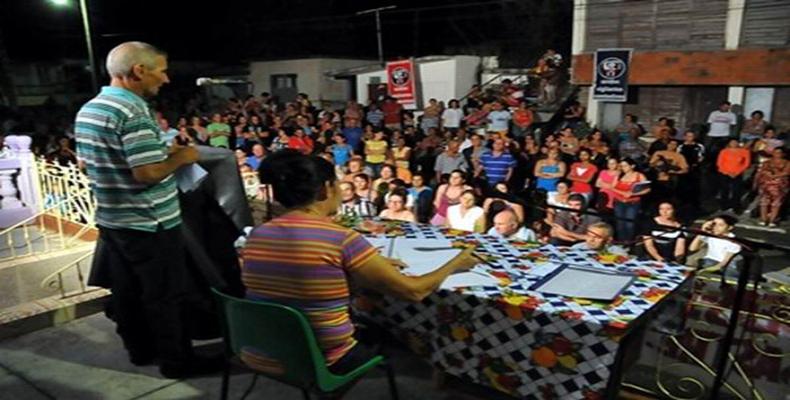Havana, January 22 (RHC) –- Cuba's National Assembly of People's Power, at the base organizations in municipalities, aims at improving their work and focusing the debate on the workshops taking place in several regions of the island.
Local Assembly members found in the discussion process some issues and limitations affecting the work of Popular Councils, delegates, working commissions and the Assembly's directors and proposals of modification in its performance to develop its effectiveness. The meetings are trying to find out how to best represent the people in local assemblies.
Cuban Congress secretary, Miriam Brito Sarroca, told reporters in Havana that discussions at the local level have yet to end and many demands and proposals are being studied by experts.
One of the recommendations includes the extension of the local delegates' mandate from two and a half to five years. This project could strengthen the working experience of delegates in the neighborhood and create better stability within the working commissions and popular councils.
The debates recognized deficiencies which weigh down the work of municipal assemblies such as the inexperience of delegates, lack of leadership presiding the sessions, restraining the quality of debates and analysis during the meetings.
Another proposal was the need to increase the control and supervision of Popular Councils and working commissions to transform the way this institution works for the communities and encourage neighbors to participate more in such control activities.
A regional workshop will take place in Cienfuegos on January 30th with the participation of delegates from Villa Clara and Sancti Spíritus. The Cuban capital will host another workshop on January 31st including the participation of representatives from Pinar del Río, Mayabeque, Artemisa, Matanzas and Isla de la Juventud.
The main basic issues brought up during the community meetings are water supply; the need for more street lighting; repair of roads, streets, highways and sidewalks; the lack of drinking water in hydraulic networks; broken drainage and water pipes; public transportation; private and public phone services and garbage collection.


